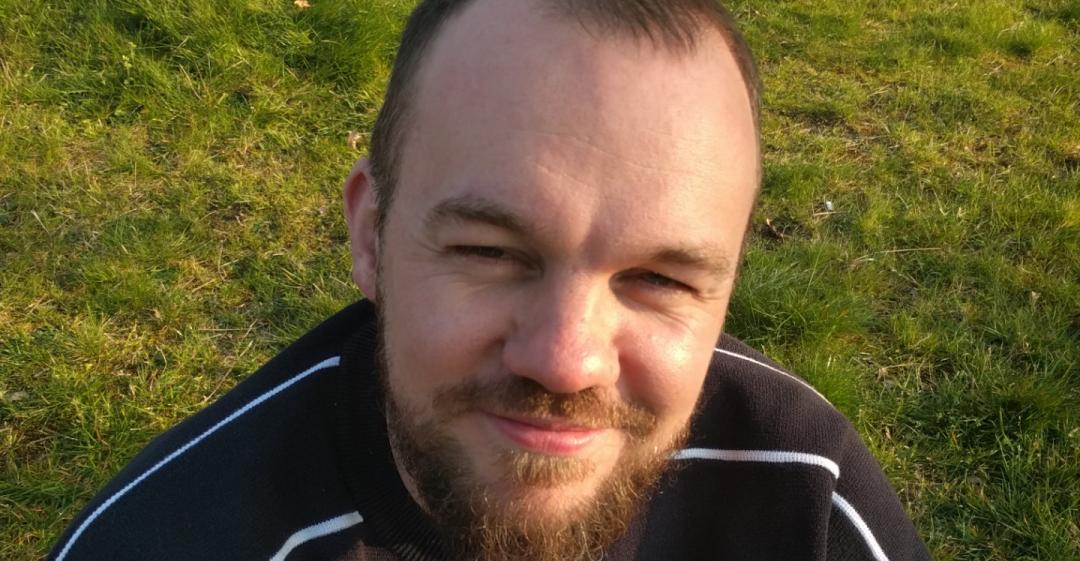“I'd always wanted something more creative.”

What work were you doing previously?
Most recently, I worked in communications for a university.
After my English degree, I'd tried out a few different things – TEFL teaching in Spain, being a technician in theatre. Basically I had a series of jobs; I never planned for any one of them to go on for too long, but somehow they did.
What are you doing now?
I'm a senior software engineer working for a FTSE 100 company.
How did you feel in your work before you decided to make the change?
I felt trapped, in work that was unfulfilling.
Why did you change?
I'd always wanted something more creative and engaging.
I'd tried to get my foot in the door of a few different industries, but I realised that if I was ever going to have the sort of life and job I wanted, I'd need to make a more serious commitment.
When was the moment you decided to make the change?
It was about seven years ago.
I was quite unhappy with my living and work situation.
My friends offered me lots of advice about how to break into this or that industry and make a change. I'd tried everything, but in the end it was clear that what was holding me back was having no money and no time, so I moved back up north to live with my parents, to take stock and re-orientate myself.
This was a hard choice, but it felt massively liberating initially and helped me find my feet.
How did you choose your new career?
I'd been thinking about doing sound engineering.
I managed to get myself work in a concert hall backstage. That felt exciting at first, but the hours were unsociable, the culture was competitive, and after a while it dawned on me that to get anywhere I'd probably need to do a course. l thought ahead five or ten years and realised it was not for me.
After coming to terms with this, I thought about other areas. I had a bit of a creative itch but also wanted the security of stable work. I'd done some work in computing previously – some vintage programming in my teenage years, then later working on a support desk, business analytics and managing the launch of a website.
So, I looked for courses and found a local university offering an MSc conversion into Computing.
I thought hard about whether this was the right choice; I considered lots of possible permutations of different outcomes and concluded – yes. And I went for it.
Are you happy with the change?
Completely.
I got a job shortly after completing my course and have now set out on what I aimed to achieve.
I work in a field that is creative, intellectually engaging, filled with good people, and no two days are ever the same. I have skills that are highly sought after and there's a great community locally and globally to be a part of.
And what's more, while I work in e-commerce, my skills can also be put to use for ethical and social ends. The opportunities are endless.
What do you miss and what don't you miss?
I don't miss anything about my former life!
I learned some things along the way and met some great people, but for a long time I was focused on how to forge a future for myself. That was a hard thing to endure.
How did you go about making the shift?
Once I made my mind up, I just applied for the course.
I found out about it a little late – I think term had already started – and I also didn't know how I would fund it. I applied for the part-time course; I was already working all my spare hours in temp jobs and had my fingers crossed for a career development loan. Thankfully, I was accepted onto the course, and luck was on my side with the career development loan.
The university was also really supportive.
What didn't go well? What wrong turns did you take?
I was behind for a long time.
It was hard working and studying at the same time, in spite of the part-time hours. Sometimes, I didn't have any work, so I had to study while also dealing with the stress of looking for work and having no money. This was in addition to maintaining a long-distance relationship of ten years that I had moved away from in order to sort myself out. It took its toll, but I persevered.
In addition, the course was mixed. Some modules were excellently taught, others were a bit dated or unstructured. I buried my head in textbooks and got by with help from my friends, family, and fellow students.
How did you handle your finances to make your shift possible?
The career development loan was the biggest factor here.
It paid for my tuition fees and then some essential extras like a laptop. I'm still paying this off now, but it was the most important investment I've ever made.
Then I worked sometimes four or five days a week and studied in the evenings and weekends. This disrupted my study, but I had no other choice.
I have to thank Manchester Metropolitan University because they were flexible with my tuition fee payments and assessment submissions. They also awarded me a small but still helpful amount from their Access To Learning fund.
What was the most difficult thing about changing?
Not knowing whether I'd make anything of this.
I'd put everything on hold, taken out a large loan, distanced myself from my partner and my friends. That was really stressful.
What help did you get? 
I couldn't have done any of this without the career development loan, support from student peers, flexibility from work and my parents taking me in again.
Not to mention the support from my partner.
I also have a friend who let me know that his workplace were undergoing a recruitment drive for software engineers, just as I was graduating from my course. That was really helpful as it's where I got my first 'in'.
What resources would you recommend to others?
If you go to do a university course and it isn't your first, check out your options for a career development loan.
Also check what other support universities can give you.
What have you learnt in the process?
This level of change is hard, but now I'm on the other side and doing well, it's given me way more faith in my ability.
It was hard not to be affected by doubts when I was undergoing this process, but one thing it has highlighted to me is my drive to succeed.
What would you advise others to do in the same situation?
Stay calm, stay connected with friends and loved ones, and don't worry if you don't know it all.
Be ready to be humiliated multiple times. And when you finally get where you want to be, show some compassion to others who were once in your position and help them.
Also, people hire 'people', not robots. Tell your story, be honest, and try your best to demonstrate your technical knowledge (but don't let your lack of it fill you with fear or get in the way of you being who you are).
What lessons could you take from Ste's story to use in your own career change? Let us know in the comments below.



